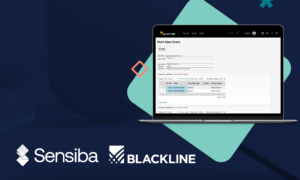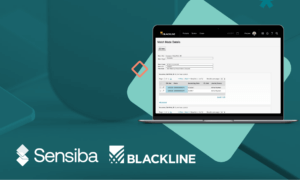As nonprofit organizations manage a variety of funding sources, organizations that receive reimbursement grants need tools and procedures to help them streamline complex donor-mandated reporting requirements and prevent potential cash-flow challenges.
Reimbursement grants are provided to nonprofits with the requirement that the organization must first incur and pay expenses before receiving grant funds. Unlike traditional grants that provide funds in advance for the organization and its initiatives, reimbursement grants require nonprofits to spend funds and meet stringent requirements to account for the expenditures as they request repayment.
Reimbursement grants are preferred by some donors and government programs to provide stricter accountability about how their funds are used. The idea is that nonprofits will spend funds prudently to avoid potential issues with reimbursements.
For recipients, reimbursement grants can create a potential cash flow challenge. Nonprofits must have sufficient reserves to pay the necessary expenses, which can be difficult for organizations operating on tight budgets. The delay between expenditure and reimbursement can strain financial resources, affecting the nonprofit’s ability to manage its day-to-day operations and invest in mission-critical activities.
Reimbursement Grant Accounting Challenges
Reimbursement grants also create potential accounting challenges for nonprofits, whose ability to collect the reimbursement depends on being able to capture expenses and allocate them to specific programs accurately and on a timely basis.
Inadequately managed grant accounting can lead to unclaimed reimbursements, non-compliance with grant conditions, and even financial penalties for not meeting grant requirements. Lack of timely accounting could cause the recipient to leave money on the table by not claiming eligible reimbursements before the grant period ends.
Best Practices for Reimbursement Grant Accounting
The accounting challenge is complicated by the fact that each grant will come with its own reporting requirements and formatting. This makes automating the process very difficult. To navigate these challenges, nonprofits can adopt several best practices for reimbursement grant accounting:
- Detailed record-keeping. Organizations must maintain thorough documentation of all grant-related expenses to support reimbursement requests.
- Regular financial reviews. It’s important to conduct frequent analyses to monitor expenditures and ensure compliance with grant conditions.
- Efficient reporting. Nonprofits must develop efficient processes to streamline the preparation of reimbursement requests and financial statements.
Utilizing Accounting Tools Like Sage Intacct
Accounting platforms such as Sage Intacct offer modules that can automate most of the process, greatly reducing the amount of manual effort and potential reporting errors.
For example, organizations can calculate personnel-related expenses more effectively by importing payroll and timesheet data into Sage Intacct and using the Intacct Allocations module to produce the chargeable amount for each grant’s reimbursement report, based on hours. This process provides expense data and supporting information the organization can share with the grant maker to get reimbursed.
Sage Intacct also offers comprehensive grant management capabilities that allow nonprofits to track and manage their billings, revenue, and expenses easily. Built-in compliance tools, for example, review expenditures to ensure funds are being spent following each grant’s provisions and restrictions.
Sage Intacct modules and partners that help streamline reimbursement grant accounting include:
- Fyle for automated expense tracking, which reduces manual data-entry errors, captures supporting receipts, and saves valuable time.
- Real-time financial reporting and dashboards for insights into grant spending and remaining funds.
- Compliance management through Sage Spend Management to enforce spending restrictions to a budget by program and funder.
- Cash flow management and visibility into the organization’s financial positions and forecasts of its future cash needs, using dashboard performance cards and graphs.
By leveraging Sage Intacct, nonprofits can overcome the intricacies of reimbursement grant accounting, ensuring they remain focused on their mission. Nonprofits can turn financial management from a challenge into a strategic advantage, ensuring they have the resources they need to make a lasting impact.
To learn more about leveraging the power of Sage Intacct’s reimbursement grant accounting platform for your nonprofit’s success, contact us.

















